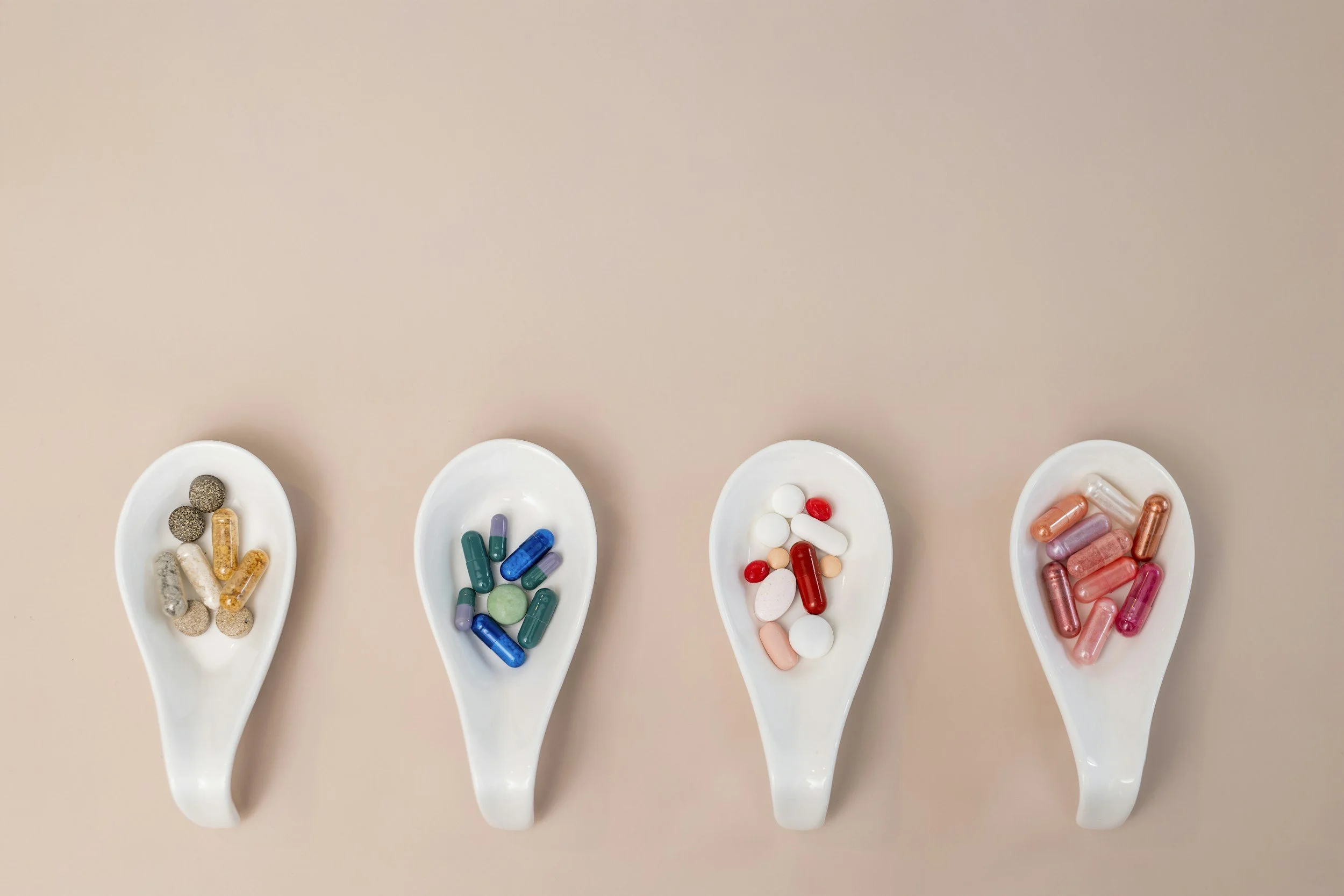The world of supplements is a prominent one in nutritional therapy , and often when I see a client for the first time they'll be already taking an array of remedies with no clear reason as to why. Sometimes on the recommendations of friends but also influencers and advertising telling them that this or that vitamin or herb will solve their health issue, or make them feel 10 years younger. But do we all need them? The truth is, while a balanced diet is always the foundation of good health, there are times when supplements can play an important role. We’re also going into cold and flu season and we’re all feeling that we need all the help we can get to minimise the effects of the inevitable viruses.
In this post, I’ll explain when supplements may be beneficial, when they might not be necessary, and how to make informed choices.
Food first, always
It’s important to start with the basics: no supplement can replace the power of whole foods. Fruits, vegetables, wholegrains, legumes, nuts, seeds and lean proteins provide a vast array of vitamins, minerals, fibre and plant compounds that work together to support health.
For most healthy adults, eating a varied diet can provide the majority of essential nutrients. However lifestyle, environment, individual needs and life stages mean there are situations where supplements are helpful and in some cases essential.
When Supplements Are Necessary
Here are the most common situations where supplements are either recommended or strongly advised in the UK:
Vitamin D
The NHS recommends that everyone in the UK take a daily 10 microgram (µg) vitamin D supplement during the autumn and winter months. Our bodies make vitamin D from sunlight, but between October and March the sun isn’t strong enough. Vitamin D is found in certain foods but it's hard to derive adequate amounts so supplementing is essential for bone health, immunity and muscle function. You can take either a pill, or an oral spray/drops if you prefer, and start taking that Vitamin D now to maintain your level during the winter months and cold and flu season.
B Vitamins
Folate (B9) for pre-conception and pregnancy is essential in the first 12 weeks. Vitamin B12 is essential for nerve function and the production of red blood cells. It’s mainly found in animal products, so vegans (and some vegetarians) are advised to take a B12 supplement.
Iron
Some groups, including women with heavy periods, pregnant women, or those with a diagnosed deficiency may need supplementation. However, iron should only be taken if recommended, as too much can be detrimental as too little. There isn't normally a need for iron post-menopause, as women are no longer bleeding regularly. However so often I'll see women in this life stage who were once upon a time anaemic and still taking a multivitamin including iron - so test don't guess is my advice here.
When Supplements May Not Be Helpful
High doses can be dangerous; e.g. too much vitamin A can damage the liver, and excess iron can be toxic. Herbal supplements aren’t harmless and risk-free either and can interfere with prescription medications including antidepressants and the contraceptive pill. Supplements should be targeted to your needs, not taken as a blanket safety net.
How to Supplement Safely
If you’re considering supplements, here are some tips for doing so wisely:
Check quality. Look for brands that are tested for safety and purity, as well as those who don't contain too many fillers or binders, cheap isn't always cheerful and some brands are far superior to others. In the UK, supplements are regulated as foods not medicines, so quality can vary.
Avoid mega doses. More isn’t better. Stick to recommended daily amounts unless advised by a professional,
Check interactions. If you’re on medication and unsure, check with your GP, pharmacist or nutritional therapist before starting anything new.
It’s worth remembering that supplements should support a healthy lifestyle, not replace it. Sleep, stress management, exercise, hydration, and a balanced diet all have a profound impact on your wellbeing. A vitamin tablet can’t undo the effects of poor sleep or a heavily processed diet.
Conclusion
Supplements can absolutely play a role in supporting your health, but they’re not a magic fix. Think of them as filling the gaps, not building the foundation.
If you’d like tailored advice on whether supplements could benefit you, I offer one-to-one consultations where we can look at your diet, lifestyle and individual requirements in detail. I also offer functional blood testing where we can take an in depth look at your blood chemistry to see what your body really needs.
Do feel free to contact me for a discovery call and we can chat x


